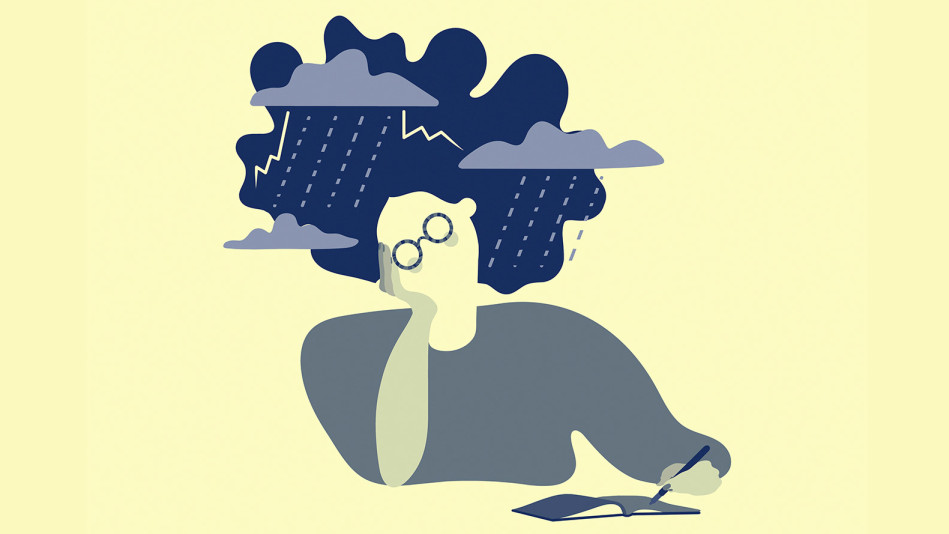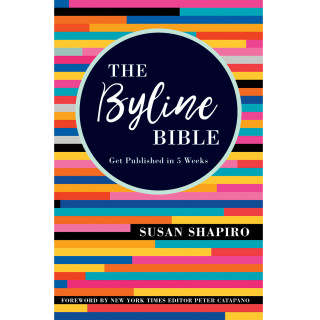What to Do When Your Dad Doesn't Approve of Your Lifestyle
The author of The Byline Bible looks back on her tricky relationship with her father—and discovers love and understanding.

Photo: Alice Mollon/Getty Images
"Do something useful with your life. I'll still pay for law or medical school. It's not too late," my father said.
At 33, I was a freelance journalist who had landed pieces at some big-name publications. It hurt to disappoint him. A blunt, conservative Michigan physician and brilliant diagnostician (think: a Jewish Dr. House), he detested my erratic career and liberal politics. Not to mention my child-free life in Manhattan, the hometown he'd fled. He preferred my science-minded brothers, who were redheads like my mom, with normal professions in the Midwest. I'd inherited Dad's olive skin, dark coloring, good feet and addictive personality. But he never approved of anything I did. "You remind me of Shirley," he'd say, to my dismay.
I didn't realize how much I resembled his raven-haired sister until I posted a 1945 photograph of his family and Facebook tagged her with my name. That worried me. Shirley, a sharp-tongued Floridian smoker and drinker, had tough marriages and couldn't bear children. After getting breast cancer like my grandmother, she'd died too young. I'd wondered if my father chose his profession to save his mom and sibling. Since I smoked, drank and argued back like Shirley, I feared Dad and I had re-created their antagonistic connection. Especially when he trashed how little my "lefty journalism crap" paid.
Despite my MFA, I'd failed to make a living as a poet, editor or freelancer. Yet when I began teaching a class at NYU, his undergrad alma mater, he emailed, "Finally, a real job!" His rare blessing fueled me. In my big evening classes, I told my students, "The first piece you write that your family hates means you've found your voice." When I quit smoking and drinking, I shared my therapist's advice to "lead the least secretive life you can." Dad countered that "repression is the greatest gift of the human intellect."
When I married Aaron at 35, Dad didn't say "Mazel tov"; he yelled "Hallelujah." Excited I'd negotiated a good deal buying our first apartment, I rushed to share the news with my father. He seemed pleased. That night, my husband told me Dad had called him to say, "You've done wonders with her."
It became our inside joke. Whenever I did something well, Aaron teased, "I've done wonders with you."
Dad was thrilled a publisher bought my debut sex-drugs-and-marriage memoir when I was 43. Until he read it and emailed, "Stop running naked through the streets." After an emergency shrink session, I told him, "You can be proud of my accomplishment without loving the book." He did come to my splashy New York book launch with Mom. Yet walking in, our relatives whispered, "How are you holding up?" as if he were sitting shiva.
If I shared work highlights, he took to mumbling, "Proud of your accomplishment."
I was sad when he had to retire his half-century career after cardiac surgery. On my way to visit him in Michigan, his doctor Olaf, an aspiring writer, emailed me. "Your dad says you're an important author and professor who might help me."
Floored by my father's flattery, I promised, "You fix my pop; I'll fix your pages."
He hated spending his 85th birthday sick at his old hospital. Although we brought cake and balloons, he was gray and listless. Worried, I texted Olaf, offering an editing session if he'd come to Dad's room. I couldn't weigh in on his treatment like my doctor brothers. They discovered Dad was given the wrong dose of medication. Olaf adjusted it as I marked up his writing. Dad was tickled that I helped his favorite doctor publish his first essay.
"What did you tell Olaf about me, anyway?" I later questioned him.
"How proud I am of my successful daughter," he answered, melting me.
"Why don't you ever tell me that?"
"I am now," he said.
Since I had him alone for a few hours, I sat at the edge of his sickbed. "Why did you always say I was just like Shirley?" I asked. "Because I'm not afraid to argue back?"
"Because you're sharp and beautiful like her," he said, surprising me. "Shirley mostly fought with your grandfather. He wouldn't pay for her college because she was a girl, so she never went. It destroyed her. It was unfair because she was smarter than me."
"Grandpa wouldn't pay?"
"Yeah. That's why, the day of your birth, your mother and I swore you'd get a good education. We'd go into debt if we had to."
Despite disparaging my creative ambitions and calling my city "a dirty, scummy, terrible place," he'd covered my tuition for subjects he'd loathed so I'd find work I loved with no financial burdens.
"Shirley's illness and limitations were a tragedy," I said. "I thought you were saying I was also tragic."
"No, of course you're not tragic," he told me now.
Was that why? Because when I was born, before I even knew it, he'd saved me?
"I'm sorry if I was a disappointment to you," I said quietly.
"What are you talking about? You stuck to your guns and became a big success."
"I wish I would have given you grandchildren," I confessed.
"I have a lot of regrets myself," he admitted.
"You do?" He'd never said that before.
"I should have kept teaching med school. But I was stubborn and my big mouth kept getting me fired."
"I have your big mouth and stubbornness too," I conceded. "Like Shirley."
"I wish it didn't take me so long to make a good living," he admitted. "I felt like a failure, switching jobs and moving your mother around so much before my career was solid, in my 40s."
I was shocked. This street kid whose dad wanted him to be a partner in Shapiro's Window Shades became a doctor and chief of medicine who'd taken care of all his relatives, medically and financially. I'd always seen him as the prosperous captain of our rags-to-riches saga. I couldn't believe we both had this late-bloomer inferiority complex.
After 19 days as a patient, Dad was strong enough to go home. I offered to stay longer in the Midwest, but he wanted to get reacclimated. Before leaving for the airport, I went to his den. In the black Nike tracksuit I'd brought him for his birthday, he was sitting at his desk on the phone, yelling at the insurance company for a bill they mistakenly hadn't covered. He was back! Overcome with relief, I started to cry.
"Don't be sad for me, Susie," he said. "Look, I'm 85. My wife, kids and grandkids mean the world to me. I have no regrets."
"But at the hospital you told me all you regretted," I reminded him.
"Oh, don't believe any of that crap. They had me on too many drugs," he insisted. "I got everything I wanted. I've had a great life."
Thanks to my father, I did too.
I laughed as he stood up to give me a hug, not knowing it would be our last.
 Susan Shapiro, a writing professor, is the author of The Byline Bible: Get Published in Five Weeks.
Susan Shapiro, a writing professor, is the author of The Byline Bible: Get Published in Five Weeks.



